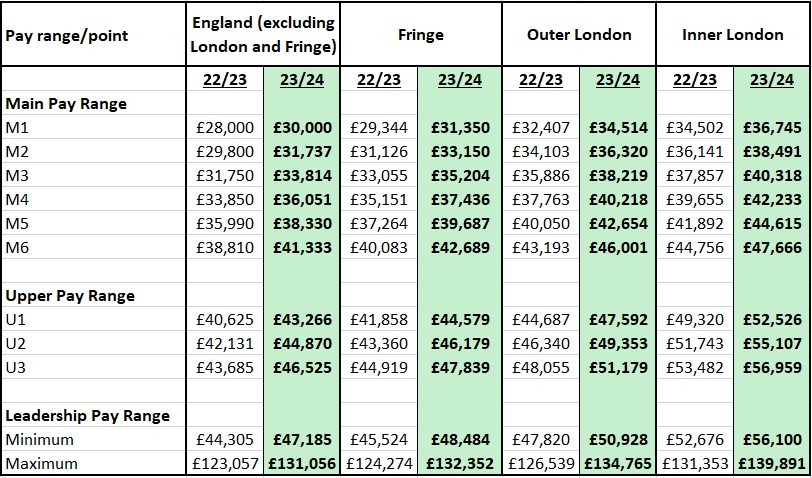No more strikes as teaching unions accept new pay deal

All four teaching unions in England have accepted the government’s new pay deal, putting an end to industrial action.
Since February, union members have held days of strike action, causing widespread disruption and forcing many schools to close. Further strikes planned for autumn will no longer go ahead.
Last month, Prime Minister, Rishi Sunak finally confirmed that the government would accept the recommendations of pay review bodies for wage hikes for millions of public sector workers in a bid to end months of strikes across the NHS, schools and other public services.
Members of the National Education Union (NEU), NASUWT and the National Association of Head Teachers (NAHT) voted to accept the deal, which was made based on recommendations by the independent School Teachers' Review Body (STRB).
86% members of the NEU voted to accept a 6.5% pay increase, on a turnout of 60%. Similarly, 85% of NAHT members and 77.6% of NASUWT teachers’ union were also willing to accept the deal.
Members of the Association of School and College Leaders (ASCL) in England have already voted to accept the pay rise from September.
Mary Bousted, joint general secretary of the NEU, said the deal meant the average teacher's salary would increase by £2,500.
"It's not all that we wanted, and we will continue to campaign for better school funding and for a restoration of teacher pay - but for a one-year pay award, it is a significant achievement," she told the BBC. "The strike action taken by our members also shifted the dial, securing the highest pay award for over 30 years. Members should be proud they have also secured extra funding for schools," she added.
Both the NEU and NASUWT who were in dispute said the pay offer was "properly funded" and would not come from existing school budgets.
Education Secretary Gillian Keegan said: “The decision of the largest teaching union, the National Education Union, to accept the 6.5% pay rise offered by the Government is good news for teachers, good news for parents, and most of all, good news for children.”
The end of the teacher strikes' dispute would allow more time to "focus on what matters most - giving our children a world-class education." That means tackling persistent absence and getting every child through the school gates every day, a relentless focus on closing the gap between disadvantaged pupils and their peers, and continued action to help young people make up for time lost during the pandemic.
"None of that is possible without the hard work of teachers. So as a new school year approaches, I am looking forward to working closely with teachers, school leaders and teaching unions to make sure we’re tackling the issues that matter most and delivering the education that every child deserves - wherever they are in the country,” she added.
How does it affect you?
As a teacher, the new pay deal means you will see an increase in your salary from September 2023. The exact amount will depend on your current pay level and where you are on the pay scale.
For example, a teacher on a M1 Inner London pay scale, will see a rise from £34,502 to £36,745. Teachers at the top of their pay scale within Inner London will see a rise from £44,756 to £47,666.

You can use a teacher pay calculator to work out what this could mean for your salary based on your current pay.
The new pay deal accepted by all four of England's teaching unions signals a much-needed return to normality. No longer will schools need to close their doors, and no more disruption for pupils and their families. It is an end of an era, but also a beginning. Teachers will thankfully be able to do what they love best – teaching!
What does this mean for education?
The new pay deal is also good news for education across England as a whole. It means that teachers are being better rewarded for the crucial work they do, which could help to attract and retain more talented teachers in the profession. This, in turn, could lead to an improved standard of education for students across the country.






